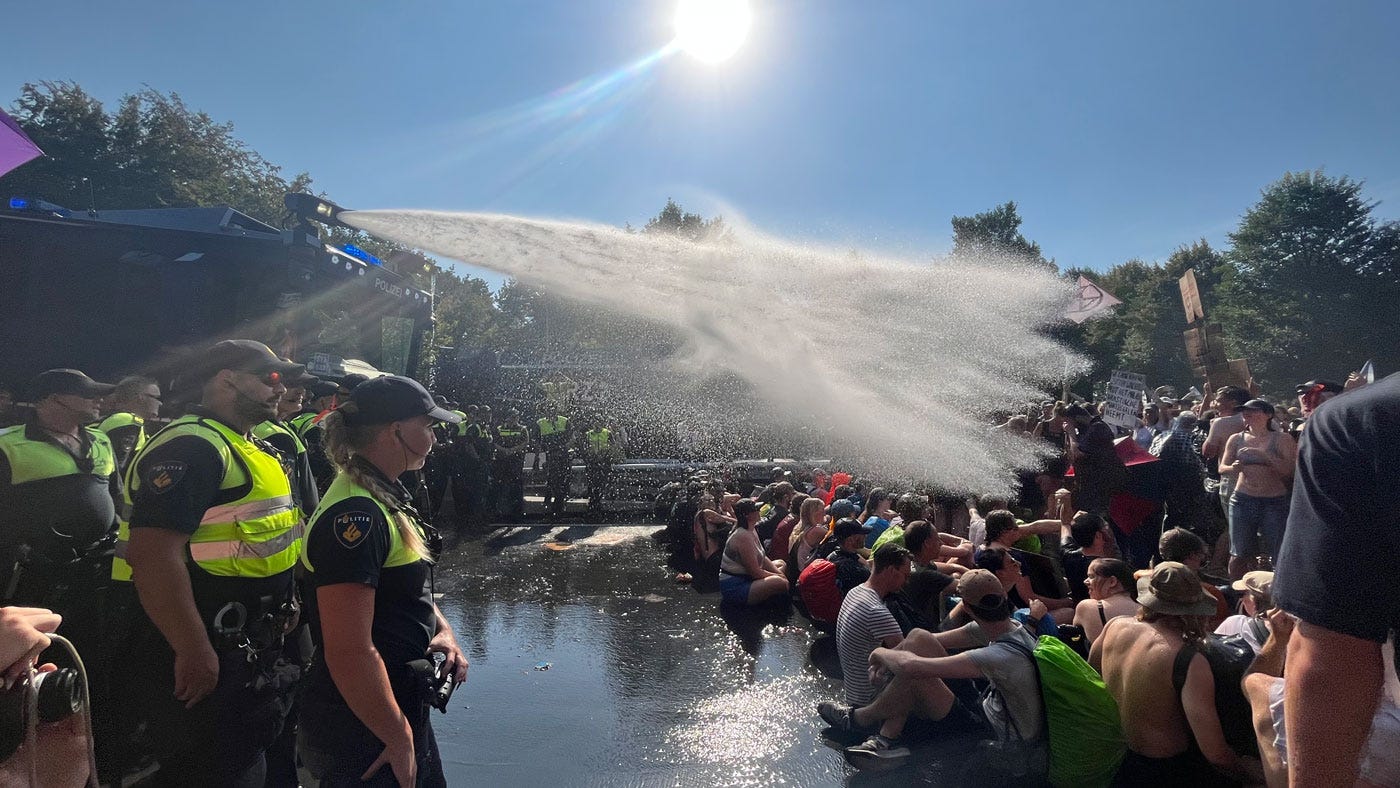Within the Dutch climate movement, we’ve hit some muddy waters. It started with this incident that involved Greta Thunberg:
Last Sunday, there was a big rally in Amsterdam. Roughly 85.000 people showed up to march for climate & justice. One of the speakers of the event, Sahar Shirzad handed the microphone to a Palestinian activist called Sara, who made a case for a Free Palestine. Some people booed, then the microphone was turned off. Moments later, Greta took the stage. She handed the mike back to Sahar after stating that we have to listen to those who are oppressed. She said there’s no climate justice on occupied land. In the middle of that, some random guy jumped onto the stage and unsuccessfully tried to take Greta’s microphone while saying: ‘I come here for a climate demonstration, not a political view’.
What a mess.
Because of all this, the climate organisations behind this march are forced to take a stand on this matter and I regret that. While I have zero patience with people who are trying to justify the relentless bombing of Gaza and I do think this guy who tried to stop Greta from speaking out was extremely entitled and wrong, I also think climate organisations should stay out of these polarising issues if possible.
When I started making cartoons for the Climate Centre, I learned that the people who contribute the least to climate change, are the people who suffer the most. The places that are most polluted? They’re where poor and marginalised people live. Who’s hit the hardest when there’s a flood or a drought? Indigenous peoples, people of color, women, children and those with (mental) health issues. Where do we see war and conflict? Often where there’s scarcity - caused by climate change- and where there are resources like oil and gas - causing climate change. So yes, all of these issues are deeply intertwined and anyone who spends some time looking into the causes and consequences of climate change, will eventually join some of these dots..
And yet, I’m saying that climate organisations should avoid taking a position about what’s happening in the Middle-East and here’s why:
In the summer of 2022, Extinction Rebellion started doing blockades on the A12, an important road into the Hague. Just a little over a year later, 25.000 people joined in this protest. This not only contributed to the huge turn-out last Sunday, it also forced our government to listen.
One of the reasons it was so successful, was its razor sharp focus: it was about fossil subsidies. Not about fast fashion or air traffic or the meat and diary industry, even though all these things contribute to climate change, as we all know. But it was fossil subsidies that we all agreed on and it brought so many of us together. Do I personally think you should buy second hand clothes and avoid flying? Yes. Do I love cheese? Guilty as charged. Do I think we should all show up at climate protests? Absolutely! We need to chip away at this problem one piece at a time and we need everyone who’s willing to lend a hand even if we think some of their opinions are weird. We simply don’t have time to all try and get on the same page on every aspect of these issues.
That’s why climate organisations should focus on what we do agree on: we need to fight global warming and we need to start today.
I always love to read your thoughts. What do you think? Let me know in the comments!
With love,










True, however there are matters too urgent to leave aside. The climate crisis is, but the humanitarian crisis and genocide occurring for more than a month with devastating consequences every day is something we cannot, we must NOT remain silent about; As spectators we do not have many resources to try to stop this, let's not stop using our voice where it can be useful
I fear that it might be impossible to avoid arguments over political sides, since the effects of climate change are only worsening the conditions in countries where those in charge would rather distract people with scapegoats than take the blame for their inhumane decisions. Gaza, which has run out of water and resources, will unfortunately be another region like Sudan, Syria and Somalia where climate changes solutions will have to included discussions about how to first eliminate the political strife.